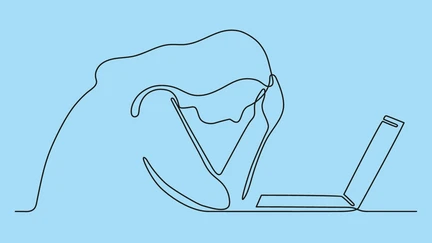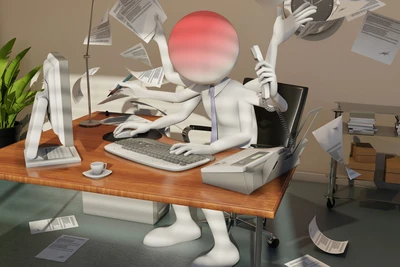Guest post: Save yourself from burnout with this simple formula
In this guest blog, Wellington-based clinical psychologist, Karen Nimmo, offers advice on dealing with burnout.

Karen Nimmo is a clinical psychologist, life coach and writer based in Wellington.
This guest post has been kindly reproduced with the permission of the author. It first appeared in The Post and on Stuff in September 2024.
ADVICE: Burnout brings lots of people to therapy.
Often they’ve self-diagnosed before they walk in the door. Or, when we name it, they’re not surprised.
They are (usually) aware that, if they don’t make a change or find a way to release the pressure valve, they’re heading into serious mental illness territory. If they’re not, therapists are duty bound to tell them.
That’s not the interesting thing, though. More intriguing is how the person responds. It tells you a lot about them, and their potential for recovery.
Some take their compromised mental health seriously, and are up for doing things differently. Others fight you, metaphorically speaking. Find excuses. Cling to the status quo of their frenetic lives. Want “coping strategies” rather than commit to change. Get a little angry when challenged.
And they are the people who’re in the most trouble.

Burnout is the fallout of chronic stress
In a nutshell, burnout shows up as (a) physical and emotional exhaustion (b) increased negativity and cynicism about people and the world around you and (c) feelings of ineffectiveness or a drop in performance.
Burnout develops when people are stretched too thin, or have been operating under stress for a long time. While it’s usually linked to work, the tipping point is often more personal – when people are under extra stress at home, in their relationships and families.
While burnout symptoms look similar to mild, even moderate, depression, many people prefer the term burnout. That’s probably because it carries less stigma than depression; it’s an easier sell to employers and co-workers — and it’s an easier sell to yourself.
But that doesn’t mean you should take it lightly. Not only is your mental and often physical health under threat, but your personal life and relationships can suffer.
If you recognise where it’s heading, though, you can turn it around.
A simple formula to help
Humans don’t have boundless energy. We all get tired, most of us go too hard at times. It’s the by-product of leading a full life as well as meeting all our obligations — or at least trying to.
Burnout comes down to the depletion of your personal energy — both physical and emotional.
And that’s the consequence of trying to do too many tasks/serve too many people while having too little energy.
In other words, your tank is dry. It needs to be refilled, and kept topped up.
In his book Necessary Endings, Dr Henry Cloud explains the formula:
The only energy you can invest is available energy. To make more energy available, you have to withdraw it from something else.
So the key to relieving burnout — and sustaining that state — is to stare down the inventory of your life and choose what you need to let go.
I’ve had clients push back on this. I recall one highly-stressed woman, who was constantly sick with colds and flu, struggling with digestive issues and emotionally only just holding on, tell me firmly (and rather loudly) that she could not cut anything from her life. “I JUST NEED COPING STRATEGIES.”
This is a lose-lose for a therapist.
She was juggling 1000 balls and even though she was dropping them in every direction she refused to let any of them go.
She knew she was doing too much — trying to keep her career on track and everyone in her world happy – and she kept adding to the list.
Her personal energy spend was way higher than her input.
So her health would continue to pay the price.

Are you ready to change?
Life is complex; most of us go through periods when we feel overloaded and overwhelmed. And it’s even harder for those whose psychological makeup — perhaps anxiety, a heavy sense of duty, a caring persona or a desire to please — makes them more vulnerable to burnout.
But if you find yourself in the burnout zone — or heading there — stop and consider your energy spend. Are your expectations of yourself realistic? Who are you trying to be a hero for?
You almost certainly need to let something go. And if you find yourself pushing back, know this: your mental health and wellbeing depend on it.
- Stuff
Further reading:
The good partner : understand the things you can change, let go of the things you can't (2022) by Karen Nimmo.
Also available as eBook Libby and eAudiobook Borrowbox
Busy as f*ck (2019) by Karen Nimmo
Also available as eBook Libby
The 5 resets : rewire your brain and body for less stress and more resilience (2024) by Aditi Nerurkar
Also available as eBook Libby
Exhausted : an A-Z for the weary (2024) by Anna Katharina Schaffner
Also available as eAudiobook Borrowbox
How we break : navigating the wear and tear of living (2024) by Vincent Deary
Also available as eBook Libby and eAudiobook Libby